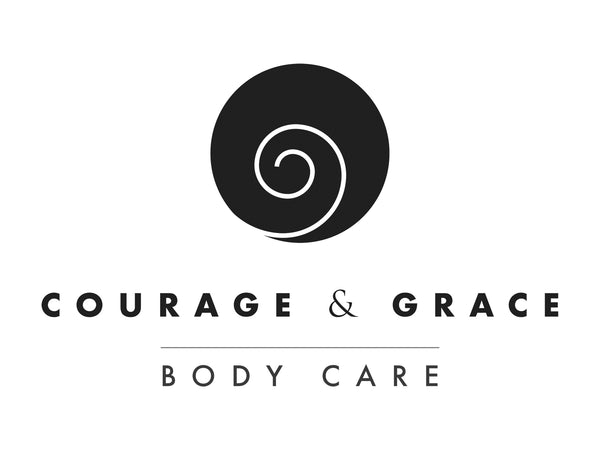by Dr. Jenna Peterson, DOM
Got Magnesium?
It is estimated 80% of the population is deficient in Magnesium. While it is an essential mineral used for hundreds of biochemical reactions, we hear very little about it. If you’ve recently had a blood test, you might assume it would show a magnesium deficiency. But only 1% of magnesium in your body is distributed in your blood, making a simple sample of magnesium from a serum magnesium blood test not very useful.
Why So Serious?
Magnesium is a mineral that activates the muscles and the nerves. It’s a mineral that attaches to adenosine triphosphate (ATP) to create the energy in the body. Without magnesium, you don’t have energy. It helps to digest proteins, carbohydrates, and fats. It actually is a building block for RNA and DNA. It’s a precursor for neurotransmitters like serotonin. It does so much in the body, but we haven’t heard much about it.
Essential for Health, Essential for Well-Being
Magnesium is an essential mineral used for hundreds of biochemical reactions, making it crucial for health. Massive magnesium deficiencies in the general population have led to a tidal wave of sudden coronary deaths, diabetes, strokes and cancer. Even a mild deficiency of magnesium can cause increased sensitivity to noise, nervousness, irritability, mental depression, confusion, twitching, trembling, apprehension, and insomnia. Magnesium levels drop at night, leading to poor REM (Rapid Eye Movement) sleep cycles and unrefreshed sleep.
Worst Case Scenario
If you don’t have enough magnesium, your muscles go into spasm. Calcium causes muscle to contract. If you had a balance, the muscles would relax, contract, and create their activity. With too much calcium, you get an intense spasm and contraction of muscles, which can lead to a heart attack.It's easy to see, magnesium is very important for the heart. The highest concentration of magnesium in the whole body is in the heart, specifically in the left ventricle. People who have heart attacks and die of a sudden heart attack after an athletic event, they can be expressing a severe magnesium deficiency. The calcium that remains causes the muscles to go into sustained contraction, and thus a heart attack.
Yikes! How do I Get Magnesium?!
The modern diet, with an overabundance of refined grains, processed foods and sugars, contains very little magnesium. Even the magnesium inside whole grains and fresh vegetables has been declining steadily in recent years because of depletion of minerals in our soils, making magnesium supplementation necessary for 80% of people.
But, there’s a catch: Most oral magnesium supplements are made of a type of magnesium that the body cannot recognize or absorb, and/or are in a very low dosage. However, if you take the ‘right’ kind of magnesium (magnesium chloride) in the needed dose you are very likely to get the laxative effect with magnesium before you get the therapeutic effect. That’s a fail-safe for magnesium; it’s kind of evolutionary. Humans grew up around the oceans. In the ocean, there’s three times the amount of magnesium as there is calcium, its ‘sister mineral.’ When you’re eating seaweed, lots of fish, and other foods from the sea, you’re getting lots of magnesium. If you get too much, the fail-safe is you’ll get the laxative effect if there’s too much magnesium onboard.
Topical is the Answer!
Transdermal magnesium chloride as the most effective way to improve your magnesium levels quickly. Magnesium Oil, magnesium chloride dissolved in water, can be applied to the skin. Most brands come in a spray bottle for both dosing and for those ‘hard to reach places.’ Applying it to the skin it for delivery is generally considered safer, more efficient, and convenient.
Bonus Round- Reduces Pain and Enhances Healing
Magnesium oil can be applied directly to inflamed and painful areas for pain management. It reduces pain and inflammation while propagating quicker regeneration of tissues. Topical application of magnesium chloride increases flexibility, which helps avoid injury. It also increases strength and endurance. Most people will show dramatic improvements in the state of their health when they begin to apply magnesium oil daily. Regardless of where it is applied on the body, once it penetrates the surface of the skin, the body transports it to whichever tissues need magnesium.
Possible manifestations of magnesium deficiency include:
-
Physical and mental fatigue
-
Low energy
-
Fatigue
-
Weakness
-
Confusion
-
Nervousness
-
Anxiousness
-
Irritability
-
Persistent under-eye twitch
-
Mouth ulcers
-
TMJ
-
Tension in the upper back, shoulders and neck
-
Headaches
-
Pre-menstrual fluid retention and/or breast tenderness
-
Poor digestion
-
PMS and hormonal imbalances
-
Inability to sleep
-
Muscle tension, spasm and cramps
-
Restless Leg/ Limb Syndrome
-
Calcification of organs
-
Weakening of the bones
-
Abnormal heart rhythm
THIS ARTICLE IS NOT INTENDED TO DIAGNOSE OR TREAT ANY ILLNESS. PLEASE CONSULT YOUR MEDICAL DOCTOR.

